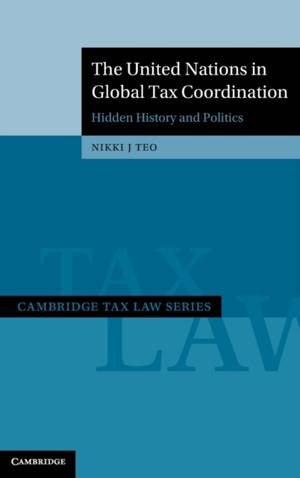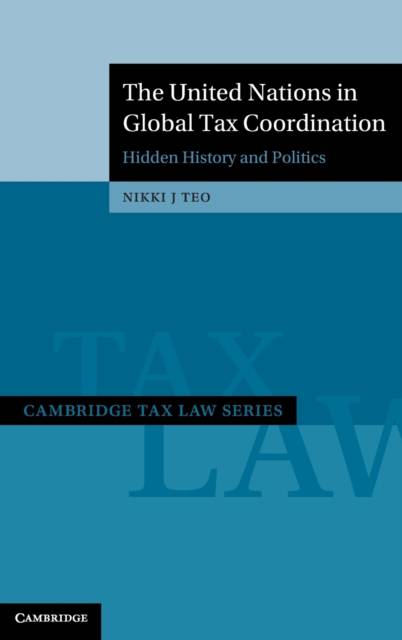
Bedankt voor het vertrouwen het afgelopen jaar! Om jou te bedanken bieden we GRATIS verzending (in België) aan op alles gedurende de hele maand januari.
- Afhalen na 1 uur in een winkel met voorraad
- In januari gratis thuislevering in België
- Ruim aanbod met 7 miljoen producten
Bedankt voor het vertrouwen het afgelopen jaar! Om jou te bedanken bieden we GRATIS verzending (in België) aan op alles gedurende de hele maand januari.
- Afhalen na 1 uur in een winkel met voorraad
- In januari gratis thuislevering in België
- Ruim aanbod met 7 miljoen producten
Zoeken
€ 213,45
+ 426 punten
Omschrijving
The United Nations in Global Tax Coordination fills the decade-long knowledge gap in international tax history concerning the UN Fiscal Commission, which functioned as the overarching fiscal authority during the early post-World War II economic order. With insights from political economy and international relations scholarship, this critical archival examination chronicles the tenacious activism by post-colonial developing countries to preserve source taxation rights, and by the UN Secretariat in championing the development of equitable tax rules. Such activism would ultimately lead developed countries to oust the UN as a forum for international tax norm setting. The book includes a revealing prehistory of the wartime work of the League of Nations that questions the legitimacy of the Mexico Model, the first model tax convention between developed and developing countries. This expertly researched work is essential reading for understanding the roles of politics, states, secretariats and private actors in directing global tax coordination.
Specificaties
Betrokkenen
- Auteur(s):
- Uitgeverij:
Inhoud
- Aantal bladzijden:
- 482
- Taal:
- Engels
- Reeks:
Eigenschappen
- Productcode (EAN):
- 9781009180467
- Verschijningsdatum:
- 23/03/2023
- Uitvoering:
- Hardcover
- Formaat:
- Genaaid
- Afmetingen:
- 152 mm x 229 mm
- Gewicht:
- 825 g

Alleen bij Standaard Boekhandel
+ 426 punten op je klantenkaart van Standaard Boekhandel
Beoordelingen
We publiceren alleen reviews die voldoen aan de voorwaarden voor reviews. Bekijk onze voorwaarden voor reviews.









